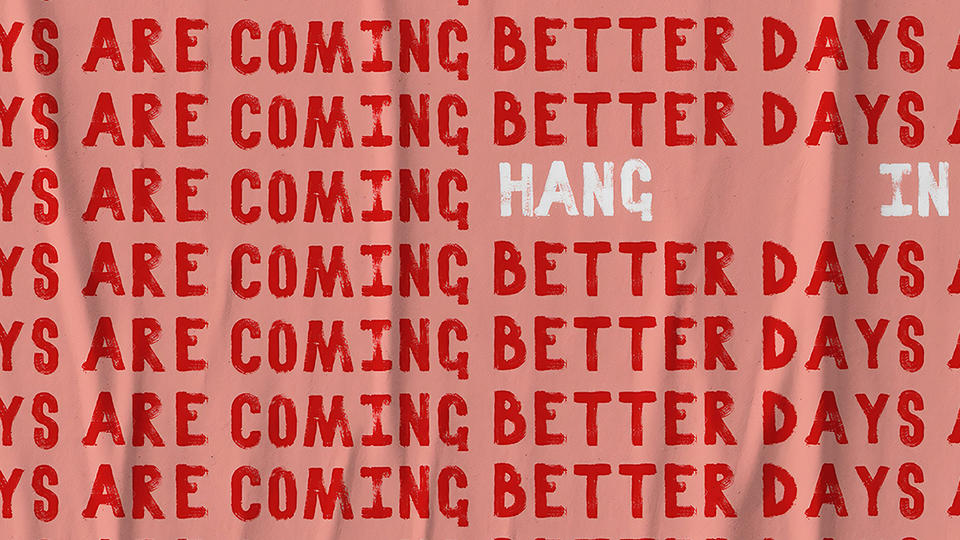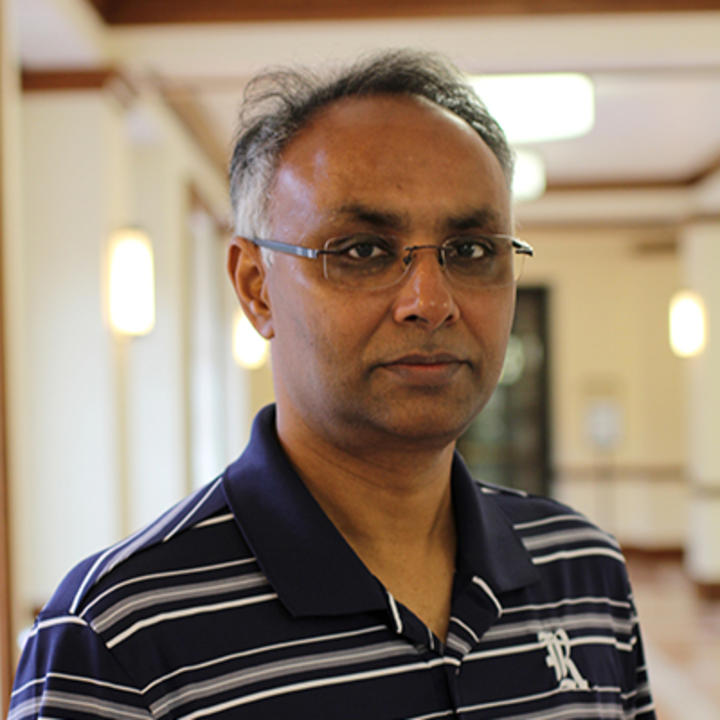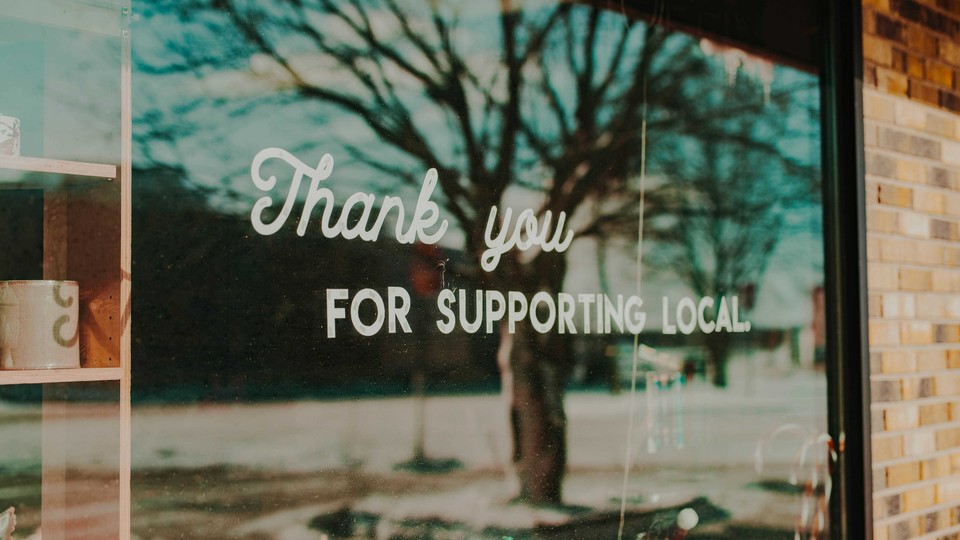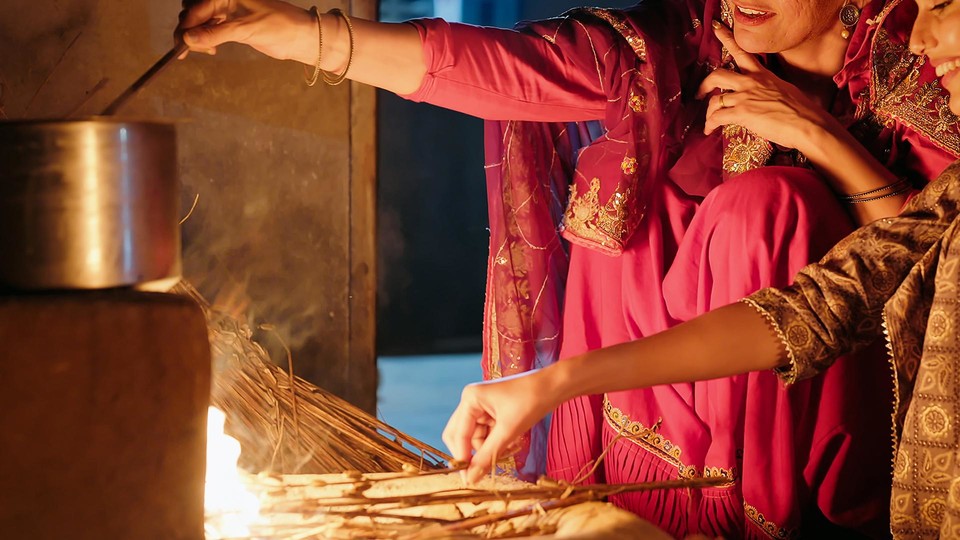Rice Business Plan Competition awards total of $2.9 million to student startups
Rice University's student startup competition awarded a total of $2.9 million to 42 competitors over the weekend at its annual business plan competition.
Elizabeth Warren Had Charisma, and Then She Ran For President
If being disliked isn’t bad enough, there’s a second, less discussed downside for women who establish a reputation for competence: They’re often considered less inspirational. For a 2009 Harvard Business Review study, Herminia Ibarra of the London Business School and Rice University’s Otilia Obodaru interviewed women business leaders and found that, like Warren, many had built a reputation for competence.
Mixing It Up
Private equity firms comes in more flavors than ever before.


Based on research by Robert E. Hoskisson (George R. Brown Emeritus Professor of Management), Wei Shi, Xiwei Yi and Jing Jin
Private Equity Firms Come In More Flavors Than Ever
- More and more private equity (PE) firms are differentiating themselves in terms of financial structure and scope of their portfolios.
- These different strategic positions have important implications for managers, investors and banks.
- Policymakers, too, need to understand the benefits and disadvantages of different types of PE firms.
In recent years, private equity (PE) firms have grappled with dwindling sources of inexpensive debt, shrinking credit — and withering criticism from the public. To compete for high-value investors and remain buoyant in this new environment, PE firms are now pursuing a range of new strategies.
Rice Business emeritus professor Robert Hoskisson joined former students Wei Shi, Xiwei Yi and Jing Jin to review the current literature and theory about today’s private equity firms. PE firms, they found, can be now be grouped into different categories based on their strategies. Understanding how these categories differ, the researchers concluded, can help investors, banks, policymakers and PE managers all make better decisions.
To analyze the different PE firm strategy types, Hoskisson and his colleagues developed a quadrant showing each PE firm’s use of debt over equity, and whether it operates niche or diversified portfolios.
While all the firms offer industry expertise and specialized knowledge and capabilities, firms that emphasize debt — such as Bain Capital — provide certain perks regarding investor-manager alignment. Known as “short-term efficiency niche players,” these firms are under more pressure to make interest payments. They also offer investors the benefit of tax deductions on that interest. Niche players with long-term equity positions — such as SCF Partners — prioritize offering long-term equity capital (instead of debt) to fund the PE firms’ portfolio of companies. Niche players also offer consistent professional support and periodic injections of cash to reinforce growth plans for their acquired businesses.
The researchers also analyzed a different set of PE firms known as “diversified players.” These firms prioritize equity and keep their portfolios focused on a limited number of industries as a way to limit bankruptcy risks in volatile markets. When one such firm, Apax, took over the UK retailer New Look in 2003, for example, it focused on internationalization and higher performance. Four years later, the firm chose not to sell, despite a bull IPO market.
The scholars also examined a subset of these diversified players, one that that relies on debt investments to make investments in multiple projects at the same time. Such firms normally try to divest the companies in their portfolio as quickly as possible. Typically large in size — KKR and Blackstone are two examples — these do not have the same degree of specialized experience as the likes of Apax. A team of experts from KKR known as KKR Capstone, for instance, offers the services of general management professionals to the companies they acquire, which helps prepare them to turn around the companies and sell them off. This kind of on-site support helps the portfolio companies make whatever changes are needed to get returns as soon as possible.
Exploring these differences in positioning, Hoskisson and his colleagues write, sheds new light onto the type of strategies an ambitious PE firm can adopt to create value. Globalization and deal syndication deals are especially promising strategies, they note, as long as companies careful think through the rationales of each option. Institutional investors and banks that lend to PE firms should understand the differences in strategic orientation too. Long-term investors, such as pension funds, might want PE players with long-term orientations such as Apax and SCF Partners. Alternatively, banks — which hope to lend to short-term efficiency niche players — need to consider the risks linked to fast turnarounds.
Policymakers, too, can learn from the researchers’ four quadrants. As the public grows increasingly hostile to private equity — focusing particular wrath on leveraged buyouts — governments need to be much more thorough in vetting the advantages and disadvantages of different types of PE firms. The strong public association of high leverage and overall market risk — the kind of risk that entails the total collapse of a system or market — means that policymakers are under public pressure to control the PE space.
At the same time, reflexively enacting overly restrictive regulation can be a mistake too, Hoskisson and his team warn. Instead of one-size-fits all regulation, the researchers advise, policymakers — as well as managers, banks and institutional investors — need to understand and address the strategic diversity among general partner PE firms. Looking at the grid can help sort out the options.
Robert E. Hoskisson is the George R. Brown Emeritus Professor of Management at Jones Graduate School of Business at Rice University.
To learn more, please see: Hoskisson, R. E., Shi, W., Yi, X., & Jin, J. (2013). The evolution and strategic positioning of private equity firms. Academy of Management Perspectives, 27, 22-38.
Never Miss A Story
Keep Exploring
Vita Inclinata Technologies from Mitchell Hamline Law School wins RBPC

Record $2.9 million awarded at world’s richest, largest student startup competition
Vita Inclinata Technologies from Mitchell Hamline School of Law in St. Paul, Minnesota, emerged as the top startup company Saturday in the 2019 Rice Business Plan Competition (RBPC) hosted by the Rice Alliance for Technology and Entrepreneurship and Rice’s Jones Graduate School of Business. The annual event is the world’s richest and largest student startup competition, and this year’s award total was a record $2.9 million.
Selected by 300 judges from the investment sector as representing the best investment opportunity and taking home nearly $700,000 in cash and prizes, Vita bested 41 other competitors hailing from some of the world’s top universities. Vita is a startup developing critical technology for sling-load and rescue helicopter operations. Vita’s goal is to eliminate the potentially deadly swing of suspended loads.
Significant new prizes this year and the teams that won them include:
* $350,000 GOOSE Society Investment Grand Prize – Vita Inclinata Technologies, Mitchell Hamline School of Law.
* $200,000 OWL Investment Group Prize – Zilper Trenchless, Massachusetts Institute of Technology.
* $200,000 OWL Investment Group Prize – Vita Inclinata Technologies, Mitchell Hamline School of Law.
* $300,000 GOOSE Society Investment Prize – Resonado, University of Notre Dame.
* $200,000 GOOSE Society Investment Prize – Rhaeos, Northwestern University.
* $200,000 GOOSE Society Investment Prize – spotLESS Materials, Penn State University.
* $125,000 GOOSE Society Investment Prize – CataLight, University of Waterloo.
* $100,000 GOOSE Society Investment Prize – BrewBike, Northwestern University and University of Chicago.
* $125,000 Finger Interests, Anderson Family Fund, Greg Novak & Tracy Druce Second-Place Investment Prize – Resonado, University of Notre Dame.
* $100,000 Cisco Global Problem Solver Prize – Rhaeos, Northwestern University.
* $100,000 TiE Houston Angel Group Investment Prize – spotLESS Materials, Penn State University.
* $125,000 Houston Angel Network Investment Prize – Zilper Trenchless, Massachusetts Institute of Technology.
* $100,000 The Artemis Fund Investment Prize – Zilper Trenchless, Massachusetts Institute of Technology.
* $100,000 The HALO Fund Investment Prize – Rhaeos, Northwestern University.
* $75,000 NASA Space Exploration Innovation Cash Award(s) – NABACO, Texas State University.
* $25,000 Southwest National Pediatric Device Prize – MiVUE, UCLA.
* $25,000 Southwest National Pediatric Device Price – Rhaeos, Northwestern University.
* $15,000 Women’s Health and Wellness Prize – Embryonic, University of California, Irvine.
* $15,000 Women’s Health and Wellness Prize – CataLight, University of Waterloo.
* $50,000 Courageous Women Entrepreneurs Prize – spotLESS Materials, Penn State University.
* $10,000 Courageous Women Entrepreneurs Prize – Treyetech, Johns Hopkins University.
* $25,000 Texas Business Hall of Fame Best of Texas Prize – NABACO, Texas State University.
* $25,000 TMCx Life Science Accelerator Prize – Rhaeos, Northwestern University.
* $25,000 Pearland Economic Development Spirit of Entrepreneurship Prize – LilySpec, Rice University.
* $20,000 JLABS@TMC Life Science Startup Prize – Treyetech, Johns Hopkins University.
* $20,000 OFW Law FDA Regulatory Strategy Prize – Calcium Solutions, University of Michigan.
* $15,000 Polsinelli Tech Investment Prize – Vita Inclinata Technologies, Mitchell Hamline School of Law.
* $15,000 Polsinelli Energy Technology Investment Prize – Vita Inclinata Technologies, Mitchell Hamline School of Law.
* $10,000 The Eagle Investors Prize – Zilper Trenchless, Massachusetts Institute of Technology.
* $10,000 Poorna Uppala – Women Empowerment Prize – spotLESS Materials, Penn State University.
* $10,000 Insperity Startup Culture Prize – Formally, Brown University.
* $6,500 Edward H. Molter Memorial Prize for Top Wildcard Team – BrewBike, Northwestern University and University of Chicago.
* $3,000 Palo Alto Software Best LivePitch Prize – RagnaRock Geo, Norwegian University of Science and Technology.
* $3,000 Jones Partners “The Connector” Prize – Tutorfly, UCLA.
* $1,000 Mercury Fund – LilySpec, Rice University.
* $1,000 Orrick Awards Banquet Company Showcase Prize – LilySpec, Rice University.
Symphony from the University of Mumbai won the $5,000 online People’s Choice Competition sponsored by Accenture. The winner was determined by a record-setting 22,000 people who voted for their favorite team via a Facebook poll.
The prizes were presented Saturday night at a banquet at the Westin Galleria that concluded the three-day event, which began April 4.
This year’s competitors were among the most diverse in the history of the competition and came from top universities around the globe, according to Brad Burke, managing director of the Rice Alliance. The teams were chosen from more than 300 entrants to compete in four categories: life sciences, information technology/web/mobile, energy/clean technology/sustainability and tech innovation. Each team made its case in 15-minute investment pitches and a rapid-fire 60-second elevator-pitch contest on the first night of the competition.
The seven finalists based on the judges’ overall scores in the 2019 RBPC were:
Vita Inclinata Technologies, Mitchell Hamline School of Law — grand prize and individual prizes with a total value of nearly $700,000.
The grand prize includes:
- $350,000-plus Investment Prize from The GOOSE Society of Texas.
- Treasury services provided by Bank of America ($5,000).
- Business plan software provided by Palo Alto Software.
- Opportunity to ring the closing bell at the NASDAQ Stock Market in New York.
Resonado, University of Notre Dame — $125,000 second-place prize and a total of more than $300,000 in prizes.
Resonado’s goal is to redefine the shape of sound with its patented Flat Core Speaker Technology.
spotLESS Materials, Penn State University — third place and more than $360,000 in total prizes.
spotLESS Materials is developing a robust bio-inspired, liquid-, sludge- and bacteria-repellent coating that can be applied in minutes in ambient conditions.
Rhaeos, Northwestern University — fourth place and more than $450,000 in total prizes.
Rhaeos is a wireless, wearable flow sensor designed to revolutionize the management of neurosurgical patients with hydrocephalus.
Zilper Trenchless, Massachusetts Institute of Technology — fifth place and more than $435,000 in total prizes.
Zilper Trenchless is working to significantly reduce the cost of infrastructure by developing new technologies related to water pipeline construction.
BrewBike, Northwestern University and University of Chicago — sixth place and more than $100,000 in total prizes.
BrewBike is working to provide college communities with delicious coffee in the most convenient ways.
CataLight, University of Waterloo — seventh place and more than $140,000 in individual prizes.
CataLight is a new kind of water filter with the goal of giving families in developing communities safe drinking water.
The top seven finalists will also receive:
- Station Houston Engine of Innovation Prize
- The Cannon Work Space Prize
- WeWork Work Space Prize
More than 140 corporate and private sponsors support the business plan competition.
Since the RBPC’s inception in 2001, when nine teams competed for $10,000, more than 229 competitors have gone on to successfully launch their ventures and are still in business today or have successfully sold their ventures. Past competitors have raised nearly $2.3 billion in funding and created more than 3,000 new jobs.
For more information about the RBPC, visit www.rbpc.rice.edu.
Rice University startup competition awards record $2.9 million in prizes
Earlier this year, Rice University announced the 42 teams that would be competing for $1.5 million in prizes, but ended up giving out a record $2.9 million.
Successfully manage a rebrand with these simple tips
Sometimes change is the right answer, but that doesn’t mean it’s easy. Here’s what customers expect when you reinvent your brand’s image. “It is important for companies to refresh their logos, but the process of doing so must be carefully managed,” said Vikas Mittal, one of the researchers, in the Rice University news release. “Our research shows that companies need to carefully consult customers…to ensure that customers feel they have been heard in the redesign and repositioning process."
5 most popular innovation stories in Houston this week
The Princeton Review ranks Rice University and the University of Houston as having among the best entrepreneurship programs in the country.
Houston high school students to test investment strategies at Rice business competition
Houston high school students to test investment strategies at Rice business competition
Meal Plan
Without a coordinated fight against hunger, the hungry don’t eat.


Based on research by Douglas Schuler and Balaji Koka
In the effort to bring healthy food to Houston’s food deserts, as in other humanitarian endeavors, there was no single coordinating agency to keep all the groups in line, so priorities tended to shift over time. The result? The long-term goal of finding a sustainable solution to food insecurity loses out to the short-term incentives of outperforming other organizations.
Key findings:
- Collaboration is often seen as the best way to solve humanitarian issues.
- But institutional barriers from donors or governments, along with a competitive mindset, can impede collaboration.
- New thinking about donors, public policies, backbone organizations and the mindset of organizational leaders is needed to prompt widespread collaboration.
Say you work for an organization fighting famine in the Horn of Africa. Thousands of refugees cross the borders there in dire need of attention. Lacking food, water and shelter, most are malnourished, and many are suffering from contagious diseases.
Your organization is tasked with helping these people. But there are dozens of other organizations that also want to help. Some focus their efforts on promoting human rights, others on providing medical care, still others on distributing food. Each group wants to be seen as a leader, partly to attract more donor and government support.
So what happens? At first, there’s a spirit of cooperation. There are so many people who need help and not enough hands to do it all. As more organizations arrive, however, competition creeps in. The refugees begin to suffer as support becomes less coordinated. What started as an emergency evolves into a full-blown catastrophe. Finally, it becomes clear that without concerted action, hundreds or even thousands of lives will be lost. How can these competing organizations, all of whom have the refugees’ best interests at heart, band together to serve them better?
Rice Business professors Douglas A. Schuler and Balaji Koka set out to discover what factors can bring organizations together to solve a humanitarian problem – and what factors ultimately drive them apart. To study the challenges, they examined similar issues affecting Houston’s food deserts: areas where residents have limited access to affordable, nutritious food.
Half a million Houstonians live in areas the USDA defines as food deserts, most of them in predominantly minority and lower-income communities. And nearly three-quarters of a million Houstonians don’t know where their next meal is coming from – a statistic that puts the city above the national average for food insecurity and has drawn the attention of a number of charitable organizations.
Schuler and Koka observed that while there was some degree of cooperation between these organizations, there was also considerable discord. Informal coalitions and collaborations did help deliver quality food to those who needed it, but the coordination wasn’t systematic, which meant that the problem of food insecurity was a long way from being resolved.
Why would it take multiple organizations to tackle this issue? One factor had to do with ambiguity in the ways different groups perceived the problem. Some groups saw food scarcity as a nutritional issue, and others as a matter of injustice. Still others saw it as a reflection of the need for community agriculture. The sheer variety of definitions meant there was an opportunity for multiple groups to work the problem from different perceptual angles.
Each group also defined its target demographic in a different way, the researchers found, which meant that their combined efforts helped a large and diverse group of people.
Actually solving the problem, however, would take more than multiple groups with multiple approaches. While the groups could work together in loose coalitions, there were barriers that prevented them from working together systematically. The first was bureaucratic: funding institutions and government agencies often imposed requirements that limited the flexibility of aid workers.
In some instances, these institutions actually created disincentives to systemic collaboration. Funders tended to focus on quick metrics, such as number of meals served, pounds of food distributed or number of children enrolled in a nutrition or gardening program. The researchers also found that donors might make just a short-term commitment, funding programs for a year or two to address problems that could take a decade or more to actually solve. Similarly, public policy often worked against collaboration by imposing tight parameters on the kinds of services that could be offered.
Under these circumstances, Schuler and Koka concluded, it was more likely that organizations would compete with each other than work together. In the effort to bring healthy food to Houston’s food deserts, as in other humanitarian endeavors, there was no single coordinating agency to keep all the groups in line, so priorities tended to shift over time. The result? The long-term goal of finding a sustainable solution to food insecurity loses out to the short-term incentives of outperforming other organizations.
But there are ways to encourage teamwork even among unrelated groups. Funders and government agencies should be willing to invest more in capacity-building efforts, the researchers concluded, and to move away from measuring short-term programmatic outputs, such as the number of meals served by a particular pantry in a single day. Shifting to a long-term understanding of a problem would limit the competitiveness that creeps in when groups vie for better quarterly metrics to attract grants and donations. Other measures to promote cooperation might include forming a backbone organization to coordinate services across disparate organizations.
Importantly, Schuler and Koka argue, organizations could make great strides by changing their mindset from one of competition to one of cooperation. They argue that organizational leaders need to refocus their efforts on core social goals instead of private organizational goals. The goal of humanitarian aid, after all, is not to please donors, but to help people in need. And getting credit for your good work only matters if that work alleviates people’s suffering – now and in the future.
Schuler, D. A. & Koka, B. R. (2019). "Challenges of social sector systemic collaborations: What’s cookin’ in Houston’s food insecurity space?" Kinder Institute for Urban Research, Rice University.
Never Miss A Story
You May Also Like
Keep Exploring
Indra Nooyi discusses corporate governance
Indra Nooyi (center), former chairman and CEO of PepsiCo, was the John L. Weinberg Distinguished Speaker at the Weinberg Center’s 2019 Corporate Governance Symposium. Joining Nooyi were, left to right, Weinberg Center Associate Director Ann Mule, Weinberg Center Director Charles M. Elson, UD President Dennis Assanis and College of Arts and Sciences Interim Dean John Pelesko.







